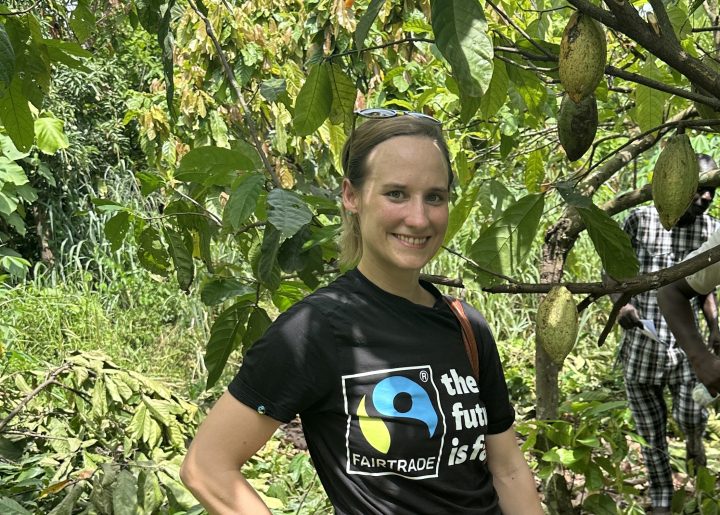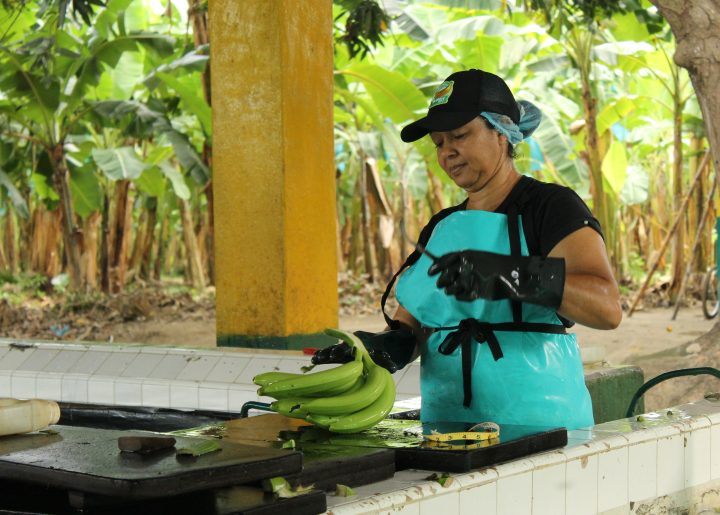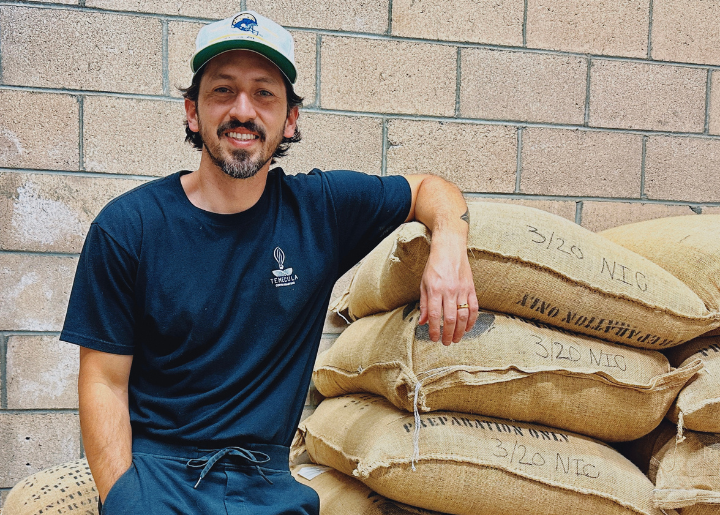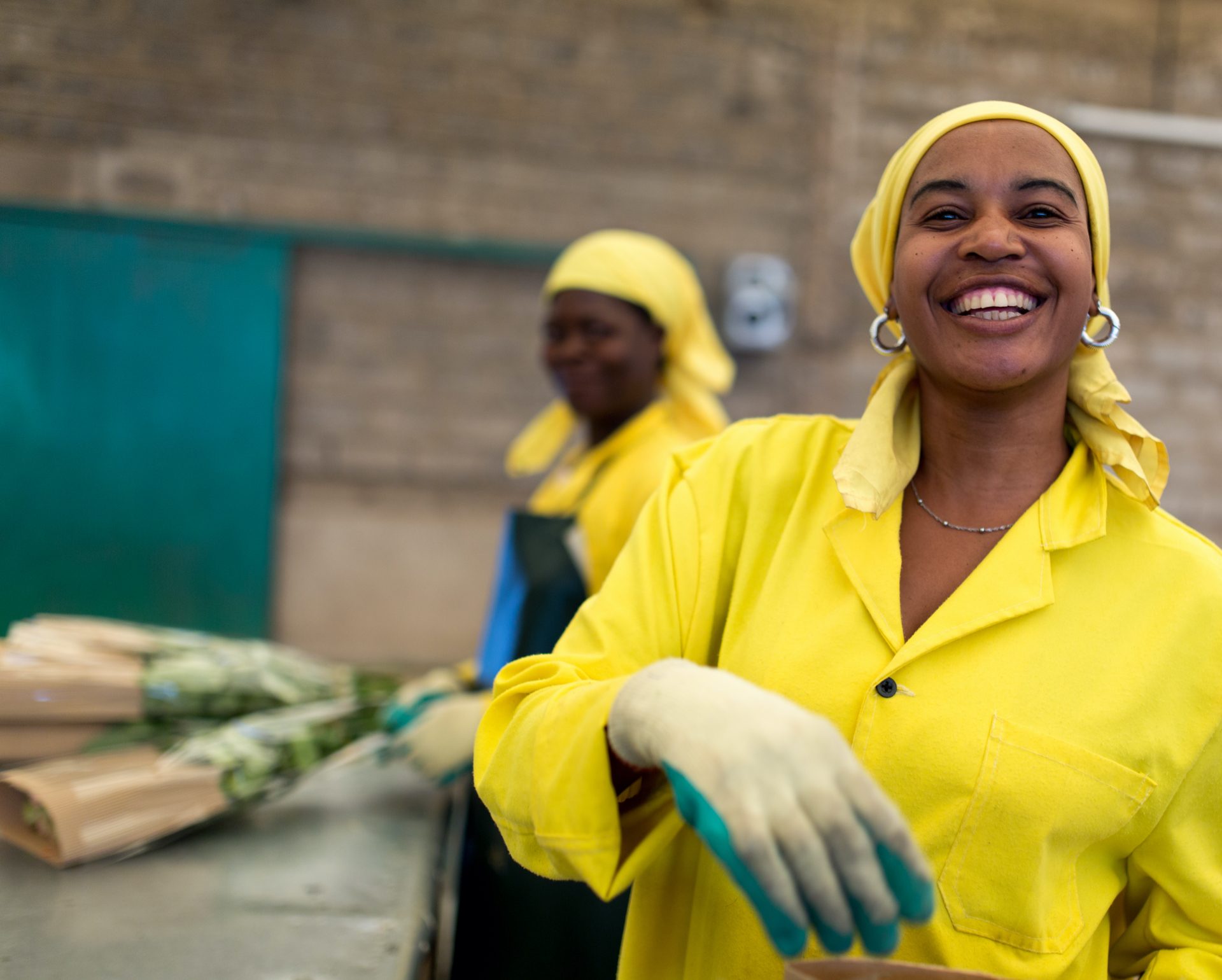The Evolution and Revolution of Fairtrade at Coliman
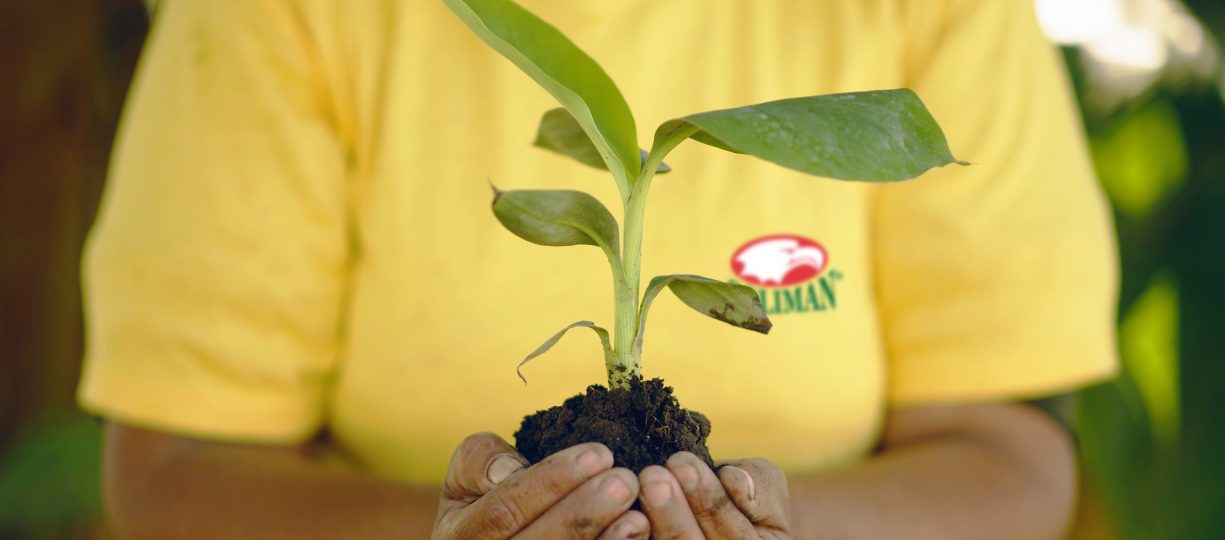
Hans Theyer visited one of Coliman’s banana farms in Colima, Mexico, in Autumn 2016. Fairtrade America works with companies such as this to adhere to the strict Fairtrade standards that help workers get a better deal. By following these standards, Coliman is proud to use the Fairtrade Mark sticker on their bananas. Hans recounts his trip to their farm and what he sees as the future for Fairtrade.
“Fairtrade nos evolucionó – y nos revolucionó.”
Standing in front of me on an October day a few years ago is the Human Resources and Social Responsibility Manager at Coliman’s Colima Farms. Erika Reyes Flores is a sincere woman, who talks passionately about her work, proudly telling me she’s also studying for a master’s degree in development work. Curious about her bold statement, I ask that she please explain how Fairtrade has evolved and revolutionized life for workers at Coliman.
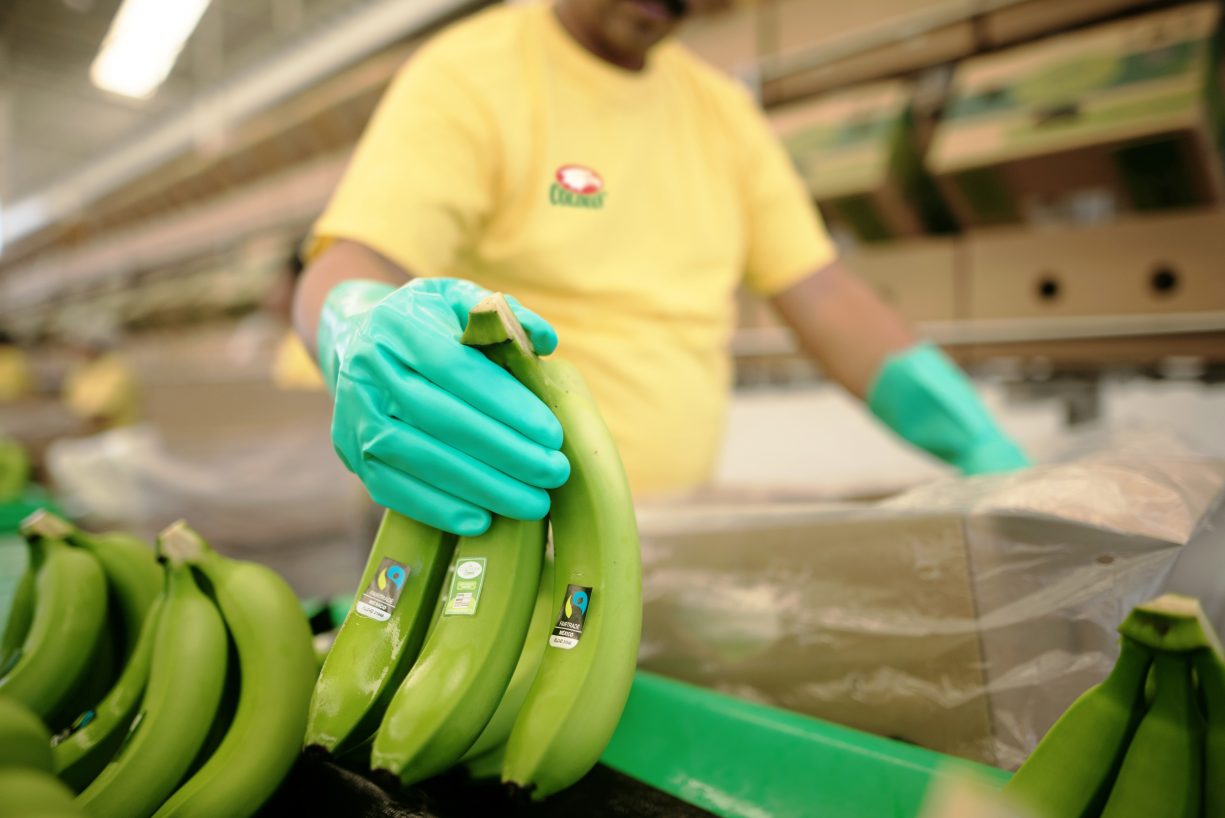
Better Working Conditions
“Before Fairtrade, there were already high standards on this farm – they treated us well and cared about our safety, health and how hard we worked. But, Fairtrade has taken us to the next level. Now, things are even more safe at work and we have better working conditions.”
Coliman’s farms have a long history in taking care of its community, people and environment. In 1963, Coliman was founded on these principles. Their commitment to social and environmental standards made the transition to Fairtrade certified farms more seamless. I saw this for myself during my visit. The rails that carried banana peduncles (the technical term for the stalk that bears many hands of fruit) stood out to me. By installing this equipment, Coliman was able to process more bananas and remove strain from workers having to carry in the plants on their backs. This reduction in manual labor opened more jobs for female workers.
More Funds, Greater Ambitions
She continued, explaining, “The Fairtrade Premium has revolutionized us, helping us think about and take control of our wellbeing like never before. With the Fairtrade Premium, we’ve paid for a small room to function as our clinic. Here, a full-time nurse is available to treat not just injuries, but also provide counselling and mental health support. Even better, a doctor comes about once per week for more serious cases. We voted to use our Premium install new tin roofs on our houses and even purchased a few bicycles so workers can get around easier.”
These improvements made my heart swell. However, the thing that stuck me the most about the benefits of Fairtrade, was that it allowed space for crazy ideas – for dreams and hopes that were never previously entertained. A project being considered by the Premium Committee at the time was loaning a proportion of the funds to members who would purchase land and have a home of their own. Speaking to a local government official, I learned that the average plot of a small farmer in the region was 1.5 hectares (or about 3.7 acres).
The fact that workers would be able to even dream about having their own land and a house, is something really special. That kind of thinking truly changes communities for the better – it channels optimism about the future.
Transforming Lives, Transforming Business
I’ve visited many such farms in my work with Fairtrade as well as from growing up in Chile. Talking to workers and managers at Coliman’s Colima Farm was a joy. Enthusiasm shone through the eyes those I met, and it was clear that they were not in the game of just checking boxes on an audit form. They really wanted to use Fairtrade as a tool to change the way they do business – and in turn, grow their business. In fact, I was questioned a few times about how other Fairtrade certified banana plantations operated because there was a clear desire to learn from others and continuously improve.
Speaking of improvement, while Fairtrade certification offers many benefits, it is not perfect. We know that and are working every day to get a fairer deal for farmers and workers. Recently, I’ve been collaborating internationally to move forward the idea of a Living Wage for workers on banana plantations. We hope to launch in the next few years a country-specific Living Wage calculation which moves businesses to pay Living Wages to workers so that they might truly thrive.
I’m also working to help stores and retailers see the benefits of Fairtrade certification. The fact that local apples are usually around three to four times the price of bananas – a tropical fruit – should highlight that the way we source and price our food is off-balance. Our research shows that shoppers are willing to pay more for Fairtrade certified bananas – and the difference of a few cents could have dramatic impact on growing communities.
As I left the farm, I felt so hopeful about the future. Fairtrade works to make sure everyone has a voice – workers, farmers and businesses. By asking each one “How do we get there?” and really listening to their answers, we can make change happen. The road is long, and with strong partners like Coliman driving the industry forward, we’ll get there soon.
Topics
We’re in this together
Fairtrade America partners with brands on the journey to certification and beyond. We can help with everything from finding a certified supply chain to marketing your newly certified product.
Get in Touch
